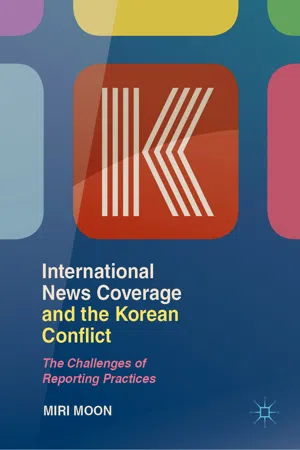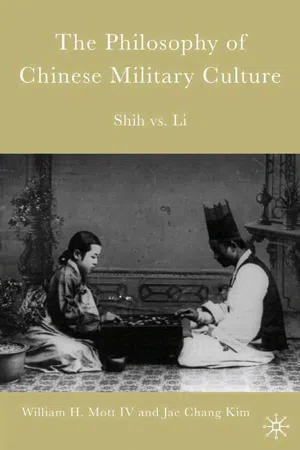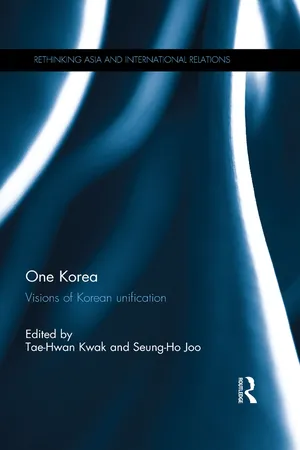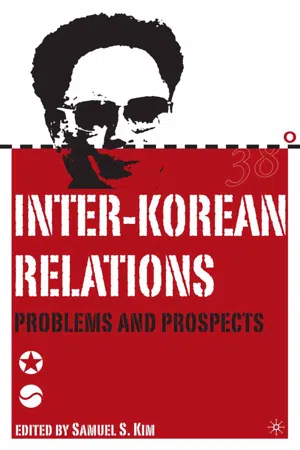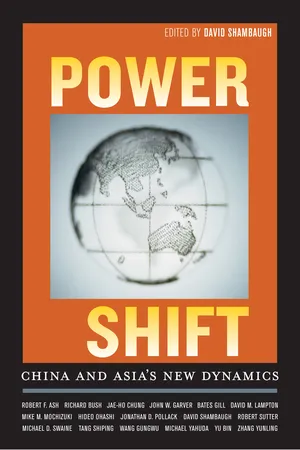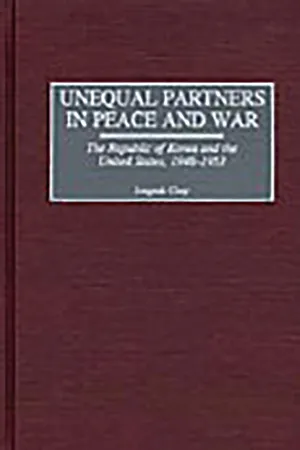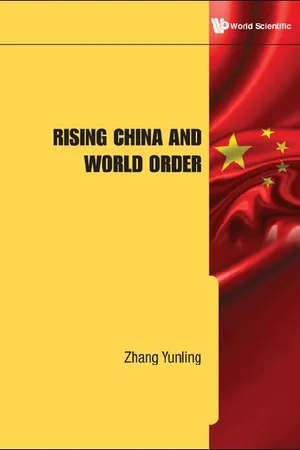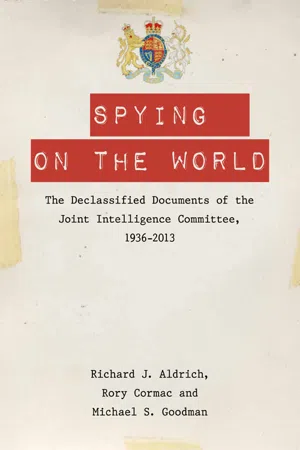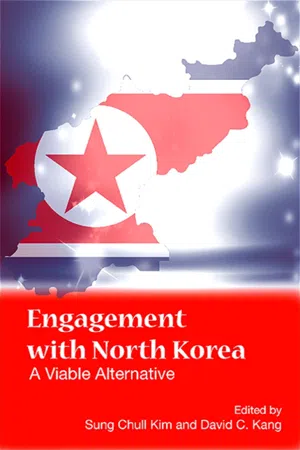History
China in the Korean War
China's involvement in the Korean War was a significant turning point in the conflict. After the North Korean invasion of South Korea, China intervened on the side of North Korea, leading to a prolonged and bloody conflict. China's entry into the war shifted the balance of power and ultimately contributed to the stalemate and division of Korea along the 38th parallel.
Written by Perlego with AI-assistance
Related key terms
1 of 5
9 Key excerpts on "China in the Korean War"
- eBook - ePub
International News Coverage and the Korean Conflict
The Challenges of Reporting Practices
- Miri Moon(Author)
- 2019(Publication Date)
- Palgrave Macmillan(Publisher)
In terms of Sino-Soviet and Sino-American relations, these facts are significant because victory in the war would serve China’s interests. North Korea launched a surprise attack on June 25, 1950. However, the Korean War, refers not only to North Korea’s invasion of South Korea but also to a brutal war game between the great powers during the Cold War era. Leckie says, “So the decision to invade was made probably by Premier Stalin, whose retouched photograph graced the wall behind Premier Kim’s massive mahogany desk in Pyongyang” (1962 : 38). As Johnson writes, “It is also worth remembering that what we call the Korean War ended as a war between the United States and China fought on Korean soil” (2000 : 140). When Eisenhower was elected President, he promised to bring the war to an end, but he found it difficult to end the conflict (Perry, 2006). In 1953, North Korea and China agreed to an armistice. This means that the South and the North are still at war because the two sides merely called a truce to cease the bloodshed. As framed by the documentary “Battle for Korea,” produced by the American public broadcaster PBS and Malin Film and Television Ltd., the Korean War was a battle of the Western powers after the Second World War and showed international power relations in the context of the Cold War (Choi, 2009). The Korean War of 1950–1953 reflects China’s foreign policies during the Cold War era. Victory in the war by China would mean an expansion of communism. Moreover, the conflict could place Communist China in a position that would bring the Soviet Union, owing to the communist connection, closer as an ally; at the same time, China could act as a ruling group in relation to the West, mainly the United States. Therefore, Communist China’s voluntary entry into the war represented another rising ruling power group in Asia - eBook - PDF
The Philosophy of Chinese Military Culture
Shih vs. Li
- W. Mott, J. Kim(Authors)
- 2006(Publication Date)
- Palgrave Macmillan(Publisher)
Chapter 5 The Korean War In October 1950, China entered the Korean War when the United Nations Command (UNC) estimated that the war was entering the last stage. China’s intervention surprised not only the United States but the Soviet Union, which had insinuated approval—if not support—for Beijing’s action. Orthodox Euro-American military doctrines could not envision China’s peasant army with its quaint maneuvers and operations challenging the modern U.S. army on the battlefield. It was inconceivable that China could achieve an armistice in Korea by force. The Context China’s first Korean War began in 1592, when the ambitious Japanese shogun Hideyoshi sent a powerful fleet and army to invade and subdue Korea as a passage into China. The Ming emperor deployed a strong expe- ditionary army to check the Japanese south of the Yalu. After many costly engagements and huge casualties, Sino-Korean forces prevailed, and late in 1598, the Japanese withdrew. Instead of occupying Korea as a conquering protector, the Chinese also withdrew. China’s second Korean War in 1894 confirmed that: “China itself would not try to conquer Korea, but China would react against another power [that] interfered in the Korean peninsula, even at great cost.” 1 After Chiang Kai-shek’s 1949 collapse, Washington intervened in Korea and effectively guaranteed Chiang’s regime on Taiwan. Convinced that the Communists had spread the Cold War to Asia, the Truman administration signed treaties of peace and alliance with Japan, extended U.S. protection W.H. Mott et al., The Philosophy of Chinese Military Culture © William H. Mott IV and Jae Chang Kim 2006 over Australia and New Zealand, and supported France in Indochina. Critical in extending U.S.-designed regional defense pacts for the Middle East and Southeast Asia, the Northeast Asia assumed second priority to Europe in Washington’s containment strategy. - Due to geopolitical factors, these choices were almost inevitable. Just after World War II, the Cold War broke out, and the liberated Korean peninsula had also become divided into two parts that belonged to different blocs. In 1949, the newly founded China added itself to the socialist bloc led 116 Cai Jian by the Soviet Union and adopted a “one-sided diplomacy policy.” When the Korean War broke out, China had no hesitation in involving itself in the war despite the number of difficulties it had to deal with at that time. Though many analysts thought that China was involved in the Korean War for ideo- logical reasons, I have argued that the main reason for Chinese involvement was realist. China’s aim was to protect its own security, just as revealed by the slogan “resisting the United States’ aggression and aiding the DPRK, pro- tecting our homes and defending our country.” As with all other countries, security was always the main concern of the new Chinese government, and the Korean War reflected the new Chinese government’s primary concern for security in the region. The word “security” is one of the most often used words in modern times. Security includes objective and subjective aspects: the objective aspect of security is a state where a people or country receive no threat from the outside world; the subjective aspect of security is where a people or country consid- ers themselves safe. 1 There are some different methods to attaining security. A popular method is security cooperation. Security cooperation could be divided into three forms according to cooperative mode, i.e., “individual security,” “collective security,” and “cooperative security.” 2 “Individual security” means that the actors mainly acquire security through strength- ening their national power or forming alliances. “Individual security” was popular in modern times when all nations mainly pursued security alone.
- eBook - PDF
Inter-Korean Relations
Problems and Prospects
- S. Kim(Author)
- 2004(Publication Date)
- Palgrave Macmillan(Publisher)
Moreover, China is geographically proximate, with strong cultural affinities and an unresolved divided nation issue of its own. China also conducts significant trade with both North and South Korea. Bonds of socialist ideology and a history of military alliance link China with the North. But China has developed burgeoning ties with the South, driven increasingly by its own economic and strategic interests. While China is arguably the key balancer on the Korean peninsula, its constructive role in inter-Korean conflict management has significant limitations. This chapter reviews the history of Beijing’s relations with Pyongyang and Seoul and then surveys China’s contribution to conflict management on the peninsula in the areas of diplomacy, economics, security, and unification. In each area China’s contribution is limited because its policy preferences on the peninsula are restrained by its conservative risk- averse logic and guided by China’s own national interests. Furthermore, Beijing’s immediate term policy is constrained by its long-term designs for the peninsula. China is intent on maintaining its influence over Korea in future decades, and current policy is crafted with a view to hedging its bets so that Beijing does not alien- ate or unnecessarily antagonize either Pyongyang or Seoul. The result is that China pursues a policy that is cautious, low-keyed, and that avoids overreaction or excessive drama, anything that might adversely affect future ties. Beijing views Korea as a “natural [Chinese] sphere of influence” and sees the peninsula’s future as being inex- orably linked with that of China. 1 Continuity and Change in China’s Korea Policy There has been both continuity and change in China’s policy toward the Korean peninsula. The continuity has been in Beijing’s support for Pyongyang, although the direction and context of this support has undergone considerable change. - eBook - PDF
Power Shift
China and Asia’s New Dynamics
- David Shambaugh(Author)
- 2006(Publication Date)
- University of California Press(Publisher)
See Chung, “South Korea between Eagle and Dragon,” 786 , and Chung, “How America Views South Korea–China Bilateralism.” 74 . Such a forecast for the military sphere is provided in Harold Brown et al., Chinese Military Power (New York: Council on Foreign Relations, 2003 ). In the con-text of the Korean peninsula, China’s influence may become irresistible in less than ten years. 75 . The controversy over China’s alleged “whitewashing” of ancient Korean his-tory produced a huge stir in South Korea in 2003 – 2004 . 76 . See, for instance, Michael Mastanduno, “Incomplete Hegemony: The United States and Security Order in Asia,” in Asian Security Order: Instrumental and Normative Features, ed. Muthiah Alagappa (Stanford, CA: Stanford University Press, 2003 ), chapter 4 . Also see Fang Ning, Xindiguozhuyi shidai yu zhongguo zhanlue [The new era of new imperialism and China’s strategy] (Beijing: Beijing chubanshe, 2003 ), chapters 8 – 10 . china and the korean peninsula 169 7 Taiwan Faces China Attraction and Repulsion Richard Bush In May 1996 , on the occasion of his second inauguration as president of the Republic of China, Lee Teng-hui offered a unique view on how Taiwan mat-tered for China. He recalled that China had suffered a series of shocks in its encounter with the West, despite an excellent traditional culture. He ex-pressed the hope that the people of Taiwan would foster a new Chinese cul-ture that combined the best of the West with Chinese heritage. He went so far as to draw an analogy between the seminal role that the Wei River valley (the central plains, zhongyuan ) had played in the flowering of traditional Chinese culture and the role that Taiwan (which he termed the new central plains, xinzhongyuan ) would play in fostering that new Chinese culture. For Lee, Tai-wan represented the best part of China in the modern world, and China would again become a great civilization only if it followed Taiwan’s lead. - eBook - PDF
Unequal Partners in Peace and War
The Republic of Korea and the United States, 1948-1953
- Jongsuk Chay(Author)
- 2002(Publication Date)
- Praeger(Publisher)
The division was in a sense the price the Koreans paid for liberation, which came to them as a gift and without their contribution. 11 180 War and Diplomacy in Korea The last country to be considered in this analysis of responsibility for the outbreak of the Korean War is the United States. It is very difficult to deter- mine exactly how much weight to assign this country for the outbreak of the Korean War. One way to gauge its importance is to look at the picture from the invader's viewpoint. From the perspective of the North Korean leaders, it must have been fairly clear that what the United States would or would not do in the war would be decisive. If there was a good possibility that the Americans would intervene, then the Soviet Union and China would not consent to start the war, and even if they did, and the war began, the chance of North Korean victory would be uncertain. If an exact weighting of the U.S. role in the outbreak of the Korean War is not feasible, at least a close examination of the components of the role played by the United States is possible. The responsibility of the United States for the Korean War has long roots, which developed through a series of actions. The 1945 division of the Ko- rean peninsula, the 1945 to 1948 military occupation, the 1947 decision to refer the Korean problem to the United Nations, the 1949 troop withdrawal, the 1948 to 1950 reluctance on the part of the United States to provide adequate military and economic aid for the Republic of Korea, the candid Acheson-Connally statements of U.S. policy toward Korea in case of crisis in the spring of 1950, and finally the later outbreak in that year of the war- all these actions and events were cumulatively and causally related. In terms of weight, the earlier acts tended to be more significant because of their impact upon later events. - eBook - PDF
- Yunling Zhang(Author)
- 2010(Publication Date)
- World Scientific(Publisher)
• US will feel increasing pressure to change its policy on North Korea and readjust its military deployment in the Korean Peninsula. • Its influence as a rising power in the Northeast Asian region will be more noticeable during the process of regional cooperation. 16 2.2. China’s Role in Establishing Peace As shown above, peace and stability in the Korean Peninsula is good for China’s interests. China will play a positive and active role in peace-making in the Peninsula. President Jiang Zemin stated in his 15 Han, S. (2000). Korea’s place in China–US ties, Far Eastern Economic Review , July 29, p. 29. 16 Liang, Y. (2000). Korean summit meeting and neighboring big powers’ relations, Journal of Northeast Asia Studies , No. 3, p. 14. 110 Zhang Yunling meeting with Kim Jong-il that “China is a close neighbor of the Korean Peninsula. The basic principle in dealing with Korean Penin-sula affairs for China is to devote itself to keeping the peace and stability in the peninsula. China hopes that the North and South will improve their relations and welcome the two leaders’ meeting and support the peaceful unification based on their own effort”. 17 It is recognized that “China now meets the condition and possesses the power to play the most constructive role in the resolution of the Korean Peninsular issues: it has upgraded its bilateral relationship with South Korea by establishing a cooperative partnership with the latter and expanding relations to a full scope that includes the secu-rity realm; and with North Korea, China has restored normal diplo-macy between the two countries and established various cooperative channels.” 18 It is also held that “Beijing’s emphasis on a peaceful and non-violent resolution of the Korean issue in many ways rep-resents how a regional great power can provide a degree of assur-ance to neighboring states”, and “China has the ability to shape the regional order and can also provide some degree of stability in an era of uncertainty”. - eBook - PDF
Spying on the World
The Declassified Documents of the Joint Intelligence Committee, 1936-2013
- Richard J. Aldrich, Rory Cormac, Michael S. Goodman(Authors)
- 2014(Publication Date)
- Edinburgh University Press(Publisher)
Implications of Chinese Communist Intervention in Korea. 47. If the Chinese do intervene, they will realise that the prospects of localising the conflict are poor, but they will, we think, try to do so at any rate at first. They are therefore unlikely initially to attempt to divert U.N. resources from Korea by staging some act of aggression elsewhere, for example, against Hong Kong, or Indo-China. 48. On the other hand it is clear that however much the Chinese might represent the conflict as a war between themselves and American aggressors the conflict would have repercussions in other areas on the Chinese perim-eter, since Britain and France would find themselves obliged to tighten up the economic blockade of China in support of their American allies and to institute other chinese intervention in the korean war 185 measures which would increase tension between themselves and China. In their inflamed state of mind the Chinese might regard these measures as a prelude to aggression against the southern part of China from Indo-China or Hong Kong and decide to forestall this by ejecting the Western Powers from these places. 49. We examine more detail below the implications on the threat to Hong Kong, Indo-China and Formosa. (a) Hong Kong. We consider that on balance even if hos-tilities could not be confined to Korea and general hostilities were to ensue between the United Nations and China, China would still in the initia1 stages prob-ably want to limit the field of hostilities as much as possible and would not extend the conflict by an attack on Hong Kong unless she considered that measures taken by the United Kingdom to strengthen the position of the colony compelled her to do so. The risk of action against Hong Kong taking place would, however, be much greater than at present. (b) Indo-China. If the war extends to China we consider that the Chinese might openly intervene on the side of Viet Minh. - eBook - PDF
Engagement with North Korea
A Viable Alternative
- Sung Chull Kim, David C. Kang, Sung Chull Kim, David C. Kang(Authors)
- 2010(Publication Date)
- SUNY Press(Publisher)
However, that decade-long PRC policy toward Korea could change should the U.S.-PRC relationship sour or even enter a probable crisis over, chiefly, the Taiwan issue; or should Beijing fail in maintaining its domestic political stability. The Korean Peninsula has historically been a major playground and battlefield to the major powers; it now tests the future of China’s foreign policy in close association with the all-important U.S.-China relationship. 79 Beijing may trade the DPRK for Taiwan or for its own political survival; it may also think, as one Chinese posted on the Internet, that “the enemy of your enemy is your friend. Nobody likes North Korea, but we should support everyone who opposes the United States.” 80 Many inside China are now increasingly pondering if China should be more aggressive on the Korean Peninsula, 81 to seek its “traditional” sphere of influence there. It is indeed a highly interesting, yet highly uncertain time to observe China’s growing and evolving influence and role on the Korean Peninsula. 82 How long will and can Beijing continue its engagement with both Koreas for its No Nukes, No Unification dual policy objective? To stabi- lize the Sino-American relationship, avoid a showdown over the Taiwan issue, and maintain a peaceful neighborhood remain the core of PRC’s 66 ENGAGEMENT WITH NORTH KOREA diplomatic interest. The No Nuke policy has served Beijing well through cultivating shared interest with the United States and preventing a chain reaction of nuclearization in East Asia that would greatly limit Chinese power and ambitions. But that policy could backfire. Coercing Pyongyang into denuclearization may defeat the No Unification policy as the DPRK, already impoverished and now being deprived its most potent bargaining chip, would be much more susceptible to a Seoul-dominated unification process.
Index pages curate the most relevant extracts from our library of academic textbooks. They’ve been created using an in-house natural language model (NLM), each adding context and meaning to key research topics.
